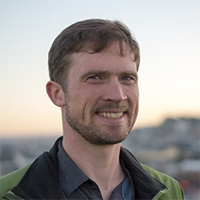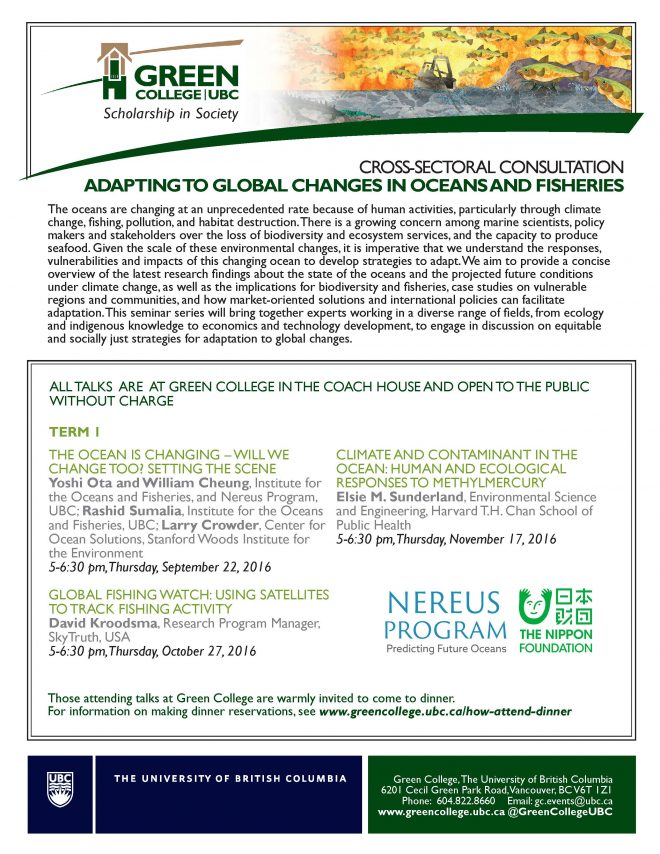This is the second free seminar in a series offered jointly by the Nereus Program and Green College, featuring David Kroodsma of SkyTruth. It will take place at UBC’s Green College on October 27. Read an interview with Kroodsma – “Big data and fisheries management: Using satellites to track fishing activity”.
4:30-5pm – Meet and Greet coffee break
5-6:30pm – Session

David Kroodsma, Research Program Manager:
David has over a decade of experience researching and communicating global environmental issues. Trained in physics (BS) and earth systems science (MS) at Stanford University, he has worked with several nonprofits and foundations as a researcher, consultant, and data journalist, all with the aim of addressing global environmental challenges. A long distance cyclist, he has also used continent-crossing bicycle journeys to draw attention to climate change through his Ride for Climate project, and he is the author of The Bicycle Diaries, a Shelf Unbound Notable Book of 2014 and a finalist for both the Montaigne Medal and Forward Review’s IndieFab Book of the Year. He lives in Oakland, California.
Session description:
Can we have eyes in the sky to monitor global fishing efforts? The Global Fishing Watch uses remote sensing collected by satellites to expose the impact of fishing. Global Fishing Watch is the product of a technology partnership between SkyTruth, Oceana, and Google that is designed to show all of the trackable fishing activity in the ocean. This web tool is being built to enable anyone to visualize the global fishing fleet in space and time. David Kroodsma, Research Program Manager at Skytruth, will reveal the intensity of fishing efforts around the world, one of the stressors contributing to the decline of global fisheries. Then he will discuss how we can protect our fisheries, which are a common resource, whether on the high seas that belong to everyone, or in the sovereign waters of individual nations.





